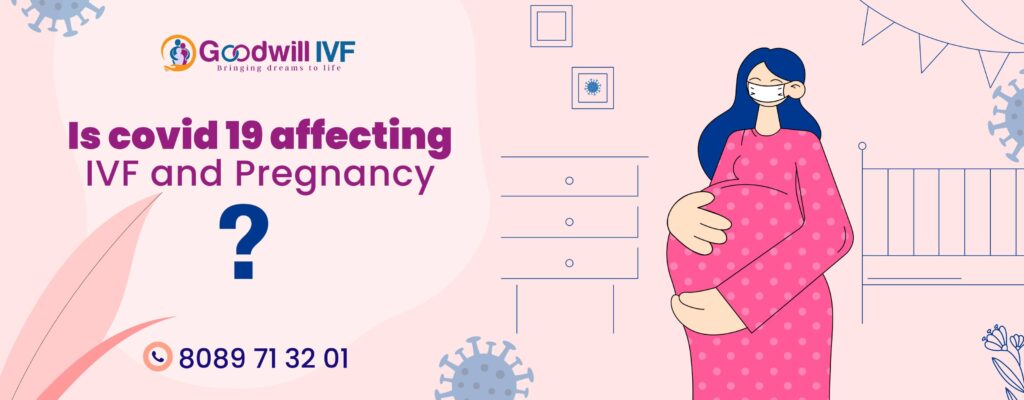Infertility is largely caused by a man’s inability to produce sperm or a woman’s poor-quality of eggs. However, in some cases, the reason for infertility may not be apparent. Unexplained infertility is a term healthcare providers are using to describe infertility after tests reveal no obvious reason for your fertility problems.
Let’s have a sneak peek into the diagnosis and treatment of unexplained fertility.
Diagnosis for unexplained male infertility
Tests used to diagnose unexplained infertility in males are similar to general infertility tests which include:
Semen Analysis: This test analyses the concentration and quality of the sperm present in the semen.
Hormone Testing: This is a blood test that denotes testosterone and other hormone levels.
Testicular Biopsy: This test analyses abnormality that may trigger infertility.
Genetic Testing: This tests are used to identify the possibility of a genetic abnormality that can usually cause infertility.
Imaging: Imaging tests which include a scrotal or transrectal ultrasound, brain MRI, etc. may be performed to determine if any structural issues are contributing to infertility.
Other specialty testing: In rare cases, other tests may be used to evaluate the quality of the sperm such as evaluating a semen specimen for DNA abnormalities.
Diagnosis for unexplained female infertility
Fertility for women depends on the ovaries releasing healthy eggs. The reproductive tract usually allows an egg to pass into the fallopian tubes and merge with sperm for further fertilization. The fertilized egg should travel to the uterus and implant itself in the lining. Tests for female infertility analyses if any of these processes are impaired. The tests which are conducted to determine the cause of female infertility include-
Ovulation Testing: This test determines when a woman is ovulating.
Ovarian Reserve Testing: This test is conducted to determine the quality of eggs which are available for fertilization
Hysterosalpingography: This test checks the structure of the uterus and fallopian tubes to recognize blockages and further issues.
Hormone Testing: This blood test determines ovulatory and pituitary hormone levels
Imaging: Imaging tests can assist in identifying underlying health conditions and physical deformities.
Hysteroscopy And Laparoscopy: These tests are conducted to check for potential physical abnormalities if any.
If none of these tests produce conclusive results and the couple is still not able to conceive, the condition may be then diagnosed as unexplained infertility. You need not perform all of these tests before the cause of infertility is found. You and your doctor can decide which of the above tests you will undergo and when.
The link between age and unexplained infertility in females
Diagnosis of unexplained infertility occurs more likely in women aged 35 and above. The main reason is a reduction in egg quality and quantity as a women age.
Unfortunately, there is no egg quality test developed yet, and therefore impossible to evaluate whether an egg-related issue is the root cause of these problems. Therefore, most women aged 40 and above experiencing problems in conception get diagnosed with unexplained fertility despite ovulating regularly.
Inaccuracy in the diagnosis of unexplained infertility
Some couples with unexplained infertility have gone on to conceive without treatment even years after their initial diagnosis. In these cases, the unexplained infertility diagnosis was likely masking a fertility problem or circumstances that may be hindering conception, but not preventing it entirely.
Treatment
Let’s go through the treatment options available for unexplained infertility
The treatment for unexplained infertility depends on several factors, how long the couple has been unable to conceive, their age, and personal preferences.
Some treatment options available are-
Medication
Intrauterine Insemination (IUI)
This consists of retrieving the egg and sperm, fertilizing the egg with sperm in a laboratory and returning the fertilized egg or embryo to the uterus where it can develop through the rest of the pregnancy term.
Intracytoplasmic Sperm Injection (ICSI)
ICSI denotes the process of injecting healthy sperm directly into a mature egg.
IVF with Donor Eggs/ Sperm
If either partner’s egg or sperm is of poor quality, IVF can be done with sperm or eggs from known or unknown donors.
Gestational carrier
In this case, the fertilized embryo developed using the couple’s egg and sperm may be placed in another woman’s uterus for the remaining pregnancy term.
Do not let a diagnosis of unexplained infertility disappoint you. Your emotional and mental health is vital during this period. Although it’s completely normal to grieve an unexplained infertility diagnosis, there are many fertility clinics and treatments that can assist you in conceiving a healthy baby. With the help of medication and modern forms of Assisted Reproductive Technology from the Best Infertility Hospital, you can overcome this issue and have a family of your own. Visit Goodwill, one of the Best IVF Centers in Calicut for a complete diagnosis of your condition with the right treatment for you.


